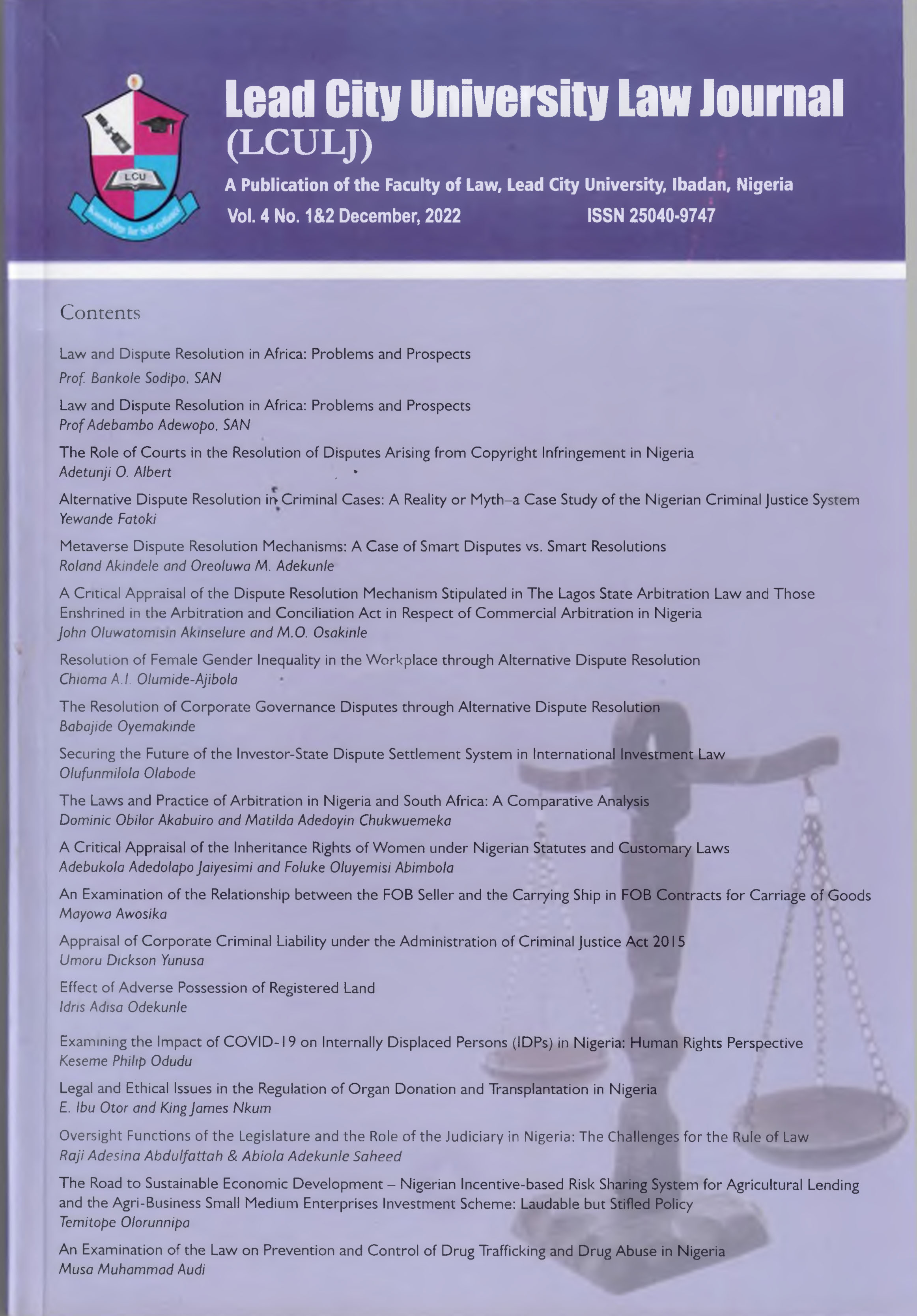LEGAL AND ETHICAL ISSUES IN THE REGULATION OF ORGAN DONATION AND TRANSPLANTATION IN NIGERIA
Keywords:
Medical Law, Medical Tourism, Organ Donation, Organ Transplant, Organ Trade, Organ TraffickingAbstract
Scientific knowledge, by allowing us to develop new technologies has greatly impacted on the
medical field and profession, thereby improving quality of life. Over the years, organ or tissue
transplantation has offered relief to patients with End Stage Renal Diseases (ESRD). Kidney
transplantation is currently the best treatment for patients with ESRD as compared to treatment
via haemodialysis. This procedure has become more popular as awareness activities for it are
on the rise. Many ESRD patients now live longer, with a high quality of life, as a result of
organs and or tissues donated by either living or dead persons before their death. People have
been known to instruct their relatives/family members to donate their organs upon their demise.
The issue in Nigeria unlike other climes is the lack of regulatory or legal framework for organ
donations and or transplantation. Using the doctrinal method of research, the challenges of
organ donation, transplantation, trade, and trafficking amongst others were examined. Nigeria
is yet to establish any legal, ethical, and infrastructural facility to regulate the practice of organ
donation and transplantation. This study recommends amongst others that a massive campaign
on organ donation and transplantation and its attendant benefits should be embarked upon by
the government and other organised bodies, especially the medical profession. Regulatory
machinery in terms of legislation and infrastructure should be put in place to reduce medical
tourism.

